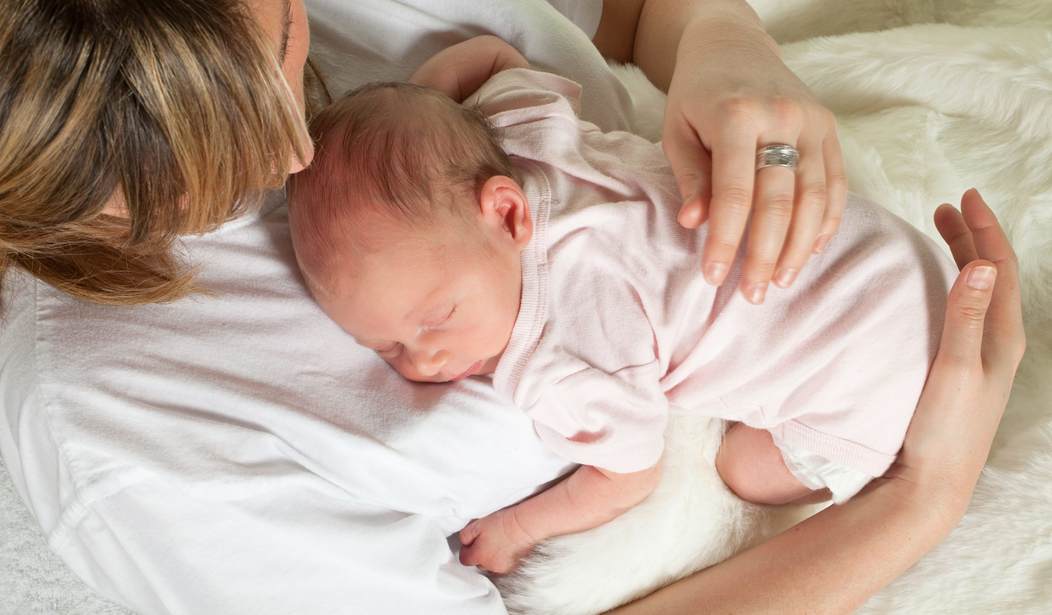Attachment Parenting. It really amazes me that in some worlds this is a divisive term. So let’s save some comment space and say this: If you don’t prescribe to a set definition of the parenting style that has come to be known as “attachment parenting,” this post is not intended for you. That’s not meant to say that if you don’t do this, you are a bad parent. It’s just that this is a post for those of you who jumped in thinking it was a wonderful way to raise your child and now feel like you’re drowning in it.
When my daughter, Chelsea, was carrying her first child, she had a deep fear that she would not be a good mother. Chelsea is deaf. Without hearing aids, she can’t hear her own voice. Although she does wear bilateral hearing aids, she relies heavily on reading lips. It is with these two tools that she communicates with and understands the world around her. How, she thought, would those tools help her with a newborn baby?
When her first child was born, she discovered that there were other communication tools that she didn’t know existed before. The filling of her milk and that sideways open smile looking for a breast told her the baby was hungry without hearing a cry.
My youngest daughter, Emily, had the same fears, in spite of the fact that hearing is not an issue for her at all. She had a deep desire for her son to know, love and want her.
Both girls wanted the same thing and had no idea how to attain it. Then, they both got what they wanted—but they didn’t expect it to turn against them.
When Chelsea’s son was just two, he instinctively knew that his mother couldn’t hear. From the time he left infancy and began to understand the world around him, he clung to her and seemingly intuitively knew how to communicate with her. Their attachment was a marvel to behold and her fears abated.
This phenomenon was illustrated before my eyes one day as I watched her correct her son at the dinner table. He couldn’t have been much over two years old when he answered his mother with a firm “No” in a low voice without moving his lips.
Emily has also found that her deepest mothering fear is also unfounded. She has a very attached baby, one who is terrified if she leaves the room. At six months he screams if she leaves his sight. In his world, she just disappeared forever—along with his supper.
Some will tell you that you need to teach your children to be ok without you. I can’t tell you what the textbooks or parenting gurus say, but this is what I know from raising nine very attached babies: You are laying a foundation of trust, communication, and attachment. As surely as they think the world has ended when you are out of sight, you are meeting a need. The strong need for attachment is only for a brief time. Soon that need will be met, and then they will have the confidence to not only leave you, but also to defy you.









Join the conversation as a VIP Member